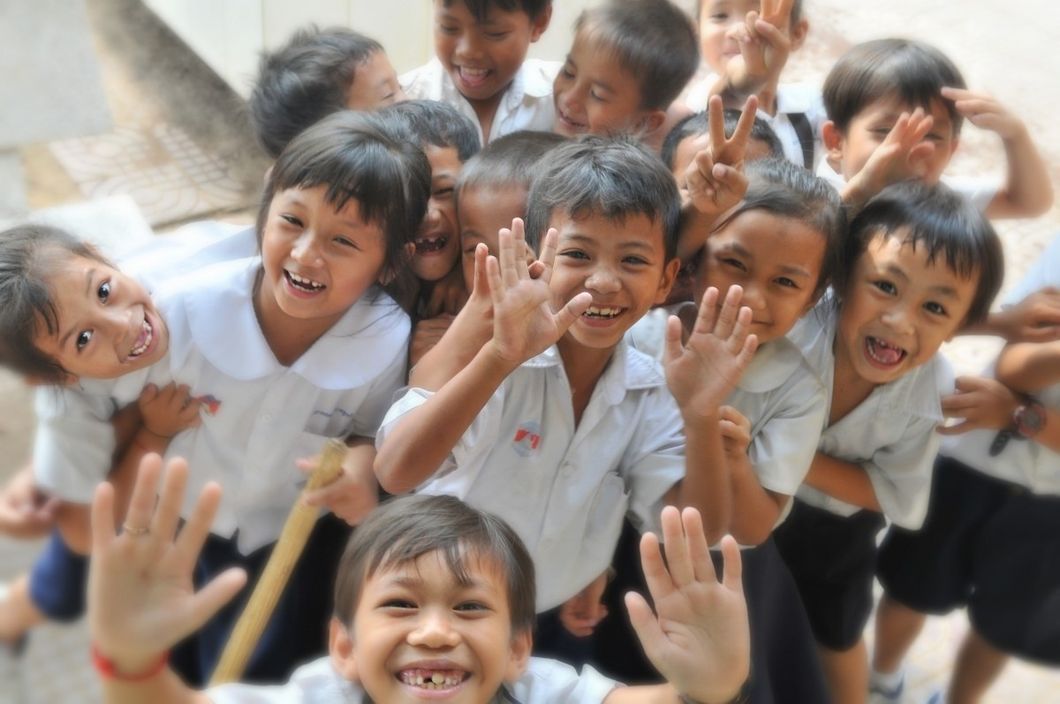An educated girl can be an invaluable asset to a family and a community. The value of providing young girls with an education goes far beyond what is normally considered. Women's rights movements have long been tied to education and access to learning. An education has the ability to level the playing field for young girls. The western world has long since seen the education of girls through this lens of equality.
An educated girl can actually begin to view herself as an equal citizen. She can contribute to her household on such a grander scale. When girls begin to view themselves as "enough," it is a truly powerful thing. They become empowered to use that education for good, to better themselves, their families, and their countries. A country with only half of its citizens possessing an education is a country performing at only half its capacity.
Beyond this, there are several more benefits for society as a whole when girls are educated. Educated women can better teach their children. Educated women heighten the health of a community. They have the knowledge to better know when to seek medical care for their family, recognize the need for immunizations and vaccines, understand proper nutrition and sanitation. Further, when women pursue an education they are likely to postpone their childbearing years slightly, which can have a beneficial impact on fertility. Even a primary education lowers the infant and maternal mortality rate by half versus those women who are illiterate. This also serves to decrease the population explosion. In a world of finite resources, an expanding population can be dangerous.
An educated woman earns more money for her work and is often more motivated than her uneducated peers. The financial return on a woman's education is surprisingly 5% more than that of a man's. An educated woman will earn 15% more in her lifetime compared to a man's 10% increase after receiving an education. According to the World Bank, a developing nation sees a 0.3% per capita income growth for every 1% of women who receive a secondary education. The UN World Food Program states that educated subsistence farmers boost efficiency leading to a larger amount of crops and declines in malnutrition.
One of the largest issues is access. Girls need to be able to have easy and protected access to education. Many young girls are willing and ready to work hard and devote their efforts to becoming educated, but may have to risk their health or even lives to do so. So, what is the solution? The primary efforts that have improved access in many countries include a variety of options. Parental and community involvement is paramount to the success of girl's education. Flexible schedules and the lowest costs possible allow families to afford to send their girls to school without losing their household labor contribution. A positive and relevant curriculum can be advantageous when promoting a girl's learning. Materials that avoid gender stereotyping but are inclusive of the girl's culture are important.
In conclusion, education for girls is vital to any society. With the right support and efforts, girls women can become an incredible asset. When the world begins to value the education of girls everywhere, societies will become more advanced than ever.







 StableDiffusion
StableDiffusion StableDiffusion
StableDiffusion 10. Extra BlanketsJuwenin Home 100% Cotton Knitted Throw Blanket
10. Extra BlanketsJuwenin Home 100% Cotton Knitted Throw Blanket StableDiffusion
StableDiffusion StableDiffusion
StableDiffusion File:Kishlaru familie.jpg - Wikimedia Commons
File:Kishlaru familie.jpg - Wikimedia Commons Photo by Hanna Balan on Unsplash
Photo by Hanna Balan on Unsplash StableDiffusion
StableDiffusion black blue and yellow round illustrationPhoto by
black blue and yellow round illustrationPhoto by 

 woman holding glass jar
Photo by
woman holding glass jar
Photo by 









